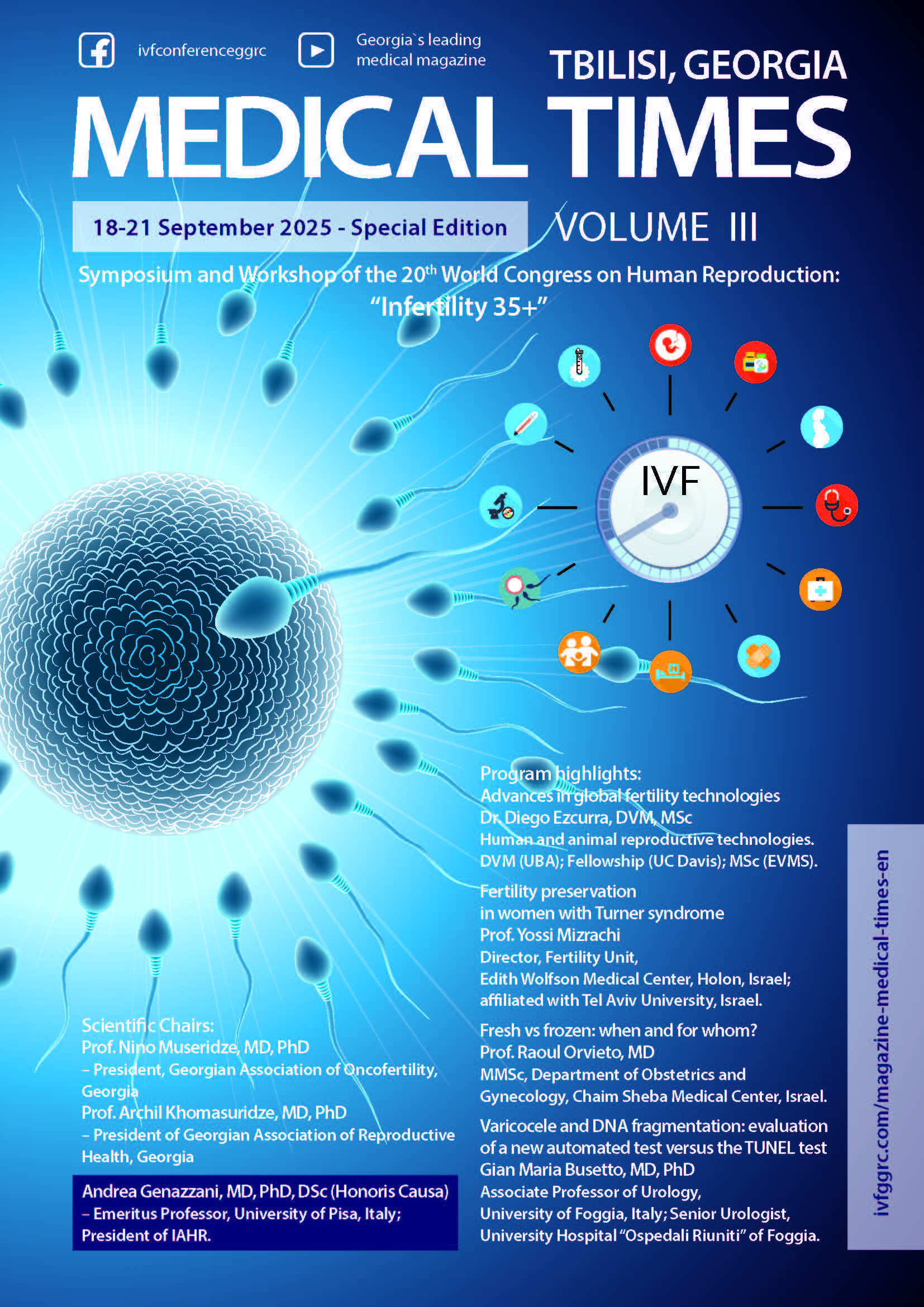Age-Related Issues of Vitamin D Deficiency and Covid-Related Health Outcomes in Georgia
DOI:
https://doi.org/10.71419/mtggrc.2024.13Keywords:
COVID-19, elderly, health outcomes, hospitalization, vitamin DAbstract
Background: In patients hospitalized for COVID-19, vitamin D deficiency was highly prevalent. Elderly patients who survived COVID-19 took more time for a full recovery compared to other age groups.
Objective: This study aims to evaluate the age peculiarities of vitamin D deficiency and COVID-re-lated health outcomes (hospitalization, transfer to ICU unit, requirement of oxygen therapy, and treatment by glucocorticoids).
Materials and Methods: Presented retrospective cross-section study was performed based on National Center of Disease control and Public Health (NCDC) data of Georgia. After obtaining the written informed consent form, 384 persons from the NCDC database were included in the study group. Study subjects were divided into two age groups: group 1 – patients aged 50 years – n=156; and Group 2 – patients aged < 50 years – n=228.
Results: The Mean serum 25(OH)D levels in the study groups did not differ significantly. However, these values were significantly lower in hospitalized patients of both groups. The odds of hospi-talization and the requirement of oxygen therapy in group 1 were significantly higher compared to group 2 (OR = 3.79, p<0.001; OR = 5.10, p=0.002, respectively). The odds of the requirement of transfer to the ICU unit (OR = 2.22, p=0.387) and glucocorticoid treatment (OR = 2.73, p=0.077) between the groups were insignificant.
Conclusion: Our study revealed significantly worse COVID-19-related health outcomes in el-derly patients than in younger age groups. However, the difference between groups in mean levels of serum 25-hydroxyvitamin D [25(OH)D] in hospitalized patients was not statistically significant.
Downloads
Published
Issue
Section
License
Copyright (c) 2024 Nia Metonidze, David Tananashvili (Author)

This work is licensed under a Creative Commons Attribution 4.0 International License.
In case an article is accepted for publication it is allowed to combine the article with other research, to conduct new research on the article, or to make different arrangements on condition that the same license is used including commercial purposes.
As an author of an article published in the Medical Times, you retain the copyright of your article and you are free to reproduce and disseminate your work.














